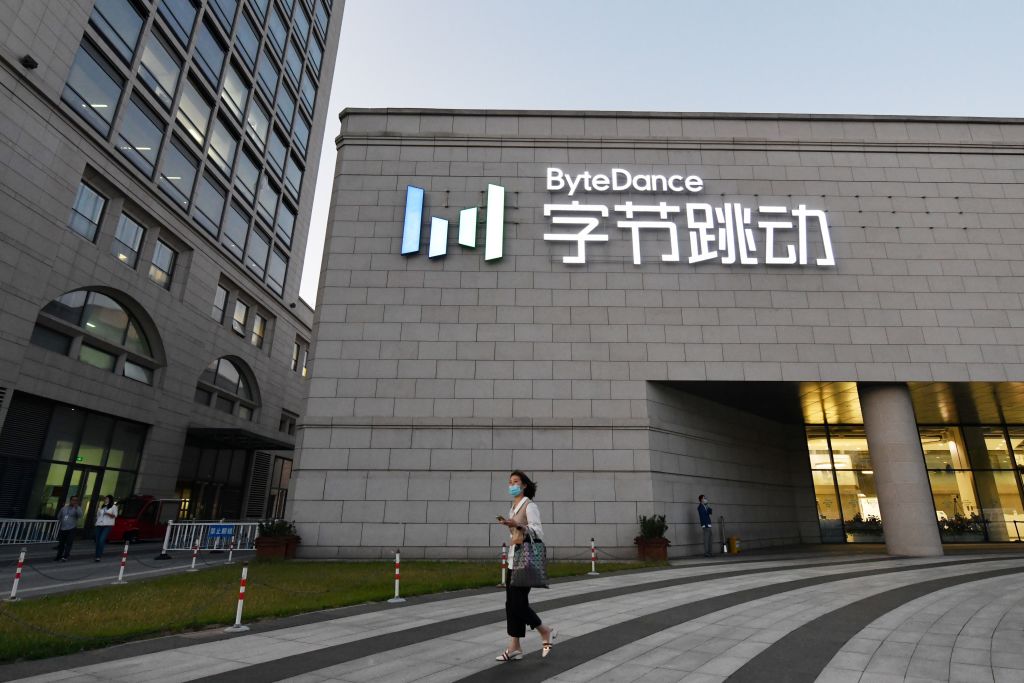
ByteDance, the Chinese tech company behind social media phenomenon TikTok, has reportedly reached a plateau in advertising revenue in China for the first time since the company’s inception in 2013, Chinese media reported, citing people within the company.
According to the report, Douyin – the Chinese version of TikTok – saw a slump in growth. Jinri Toutiao – ByteDance’s news aggregator app – is on the verge of making a loss. A source said, “it’s certain that ByteDance earned less in ads than previous years.”
The news was leaked following an internal staff meeting on Thursday of ByteDance’s Commercial Products Department, where it was confirmed that its domestic advertising revenue had stopped growing in the past six months.
It’s not just ByteDance that is “not moving ahead,” the person told Chinese reporters.
Given the current regulatory climate against social media companies in China, “commercial realisation” has become particularly challenging. ByteDance’s domestic competitors, Kuaishou and Bilibili, both reported a slump in growth since going public in February and May, respectively.
Advertising revenue is the main source of income for ByteDance. According to an internal memo that was leaked last year, the company generated at least 180bn yuan (US$27.2bn) in advertising revenue in China last year.
How well do you really know your competitors?
Access the most comprehensive Company Profiles on the market, powered by GlobalData. Save hours of research. Gain competitive edge.

Thank you!
Your download email will arrive shortly
Not ready to buy yet? Download a free sample
We are confident about the unique quality of our Company Profiles. However, we want you to make the most beneficial decision for your business, so we offer a free sample that you can download by submitting the below form
By GlobalDataDouyin reportedly accounts for nearly 60% of the ad revenue, followed by Toutiao, which generates approximately 20%.
Given the disappointing revenue results, ByteDance is now undertaking an organisational and strategic review. The source admitted that some problems were caused by bloated organisation, adding that ByteDance would focus more on innovation, better management and long-term goals.
Earlier this month, the company announced a massive internal rearrangement, which will see the company split into six separate business units, focusing on the following areas: domestic media, vocational training, enterprise solutions, work collaboration technology, gaming and overseas services.
Simultaneously, Zhang Yiming, the founder and former CEO of ByteDance, said that he would also relinquish his position as Chairman to focus on “longer-term initiatives”.
Compared to last year, Douyin’s monthly active users increased by only 20 million, while the average daily active users for Kuaishou decreased by 2.1 million.
TikTok, ByteDance’s international social media app, however, remains the most downloaded app in the world, overtaking Facebook, according to a report by Nikkei Asia.
Chinese market analysts pointed out, however, that ByteDance’s sluggish growth in ad revenue does not include its fast-growing ecommerce business, which likely balanced out the hit its edtech unit took, following China’s aggressive crackdown on that industry.
Internet user traffic in China is close to reaching its peak, which has impacted the financials of many social media and short video platforms. In addition, the Chinese government introduced an aggressive campaign to rein in the power of internet companies.
It rolled out a slew of regulatory changes that have made it difficult for ByteDance to raise capital. The company’s core business includes social media, education and gaming, three areas that have been at the centre of Beijing’s crackdown.
ByteDance is the world’s only hectacorn – a private company valued at more than US$100bn – and currently takes the top position on GlobalData’s social media thematic scorecard.







